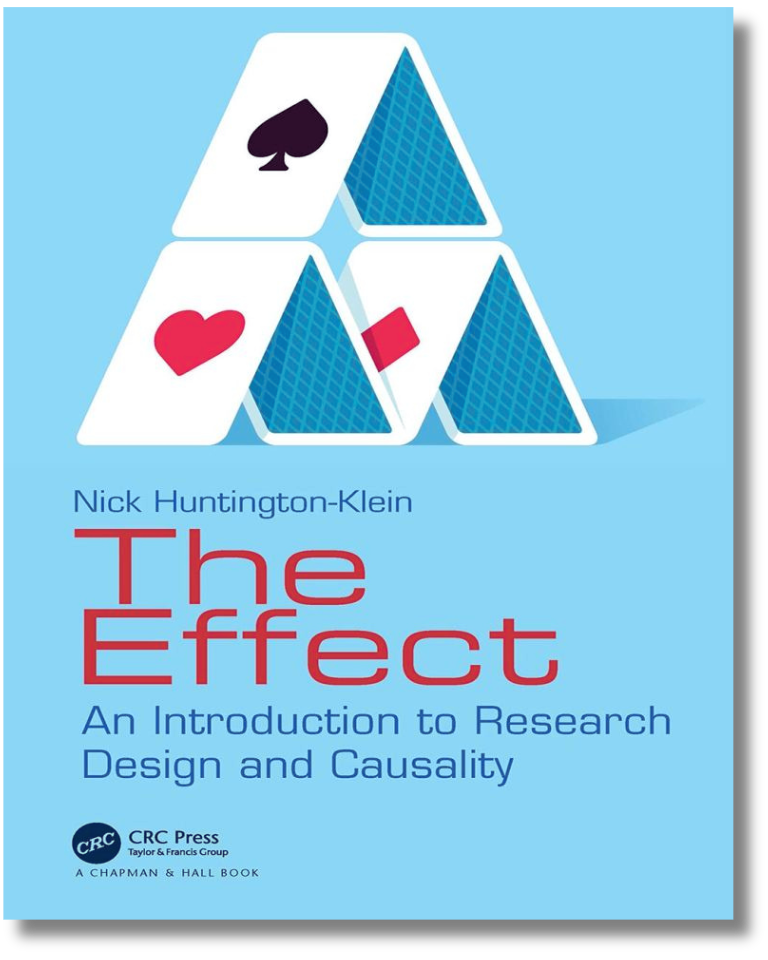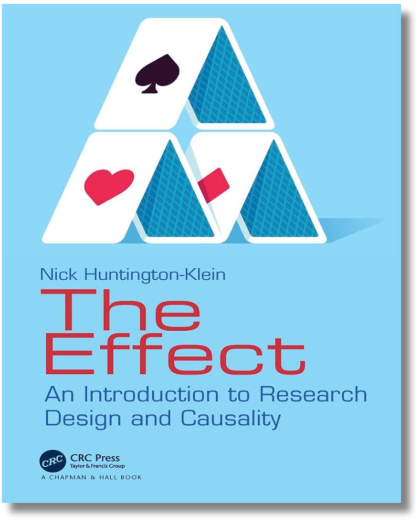Description
The Effect: An Introduction to Research Design and Causality is about research design, specifically concerning research that uses observational data to make a causal inference. It is separated into two halves, each with different approaches to that subject. The first half goes through the concepts of causality, with very little in the way of estimation. It introduces the concept of identification thoroughly and clearly and discusses it as a process of trying to isolate variation that has a causal interpretation. Subjects include heavy emphasis on data-generating processes and causal diagrams.
Concepts are demonstrated with a heavy emphasis on graphical intuition and the question of what we do to data. When we “add a control variable” what does that actually do?
Key Features:
• Extensive code examples in R, Stata, and Python
• Chapters on overlooked topics in econometrics classes: heterogeneous treatment effects, simulation and power analysis, new cutting-edge methods, and uncomfortable ignored assumptions
• An easy-to-read conversational tone
• Up-to-date coverage of methods with fast-moving literatures like difference-in-differences













This book does a great job of laying out the absolute basics and then building upon them through each chapter. Its easy to understand and a great resource for a beginner learning about causal inference.
Easily the best written introduction to causal inference out there
Just finished my graduate causal inference class and NHK saved my life! From his YouTube channel to this book, NHK breaks down the most complex methods for you to understand with multiple examples.
The Mixtape was the book we used for the class, but when paired with The Effect, you can truly master the concepts.
conversational in tone. intuitive explanation of methods with just enough rigor. very nice!
If you are a scientist who reads treatments of causal methods in technical sources, you will time and again come away with the question in your mind, “What does this really mean for the practice of science?” The highly readable and up-to-date treatment by Huntington-Klein addresses that higher-order question while providing a rich summary of the technical issues. Perhaps more important is that this treatment is balanced, considering the broad array of scientific situations and not just a detailed exposition on problems and narrow work arounds. I recommend this book over all others on the subject I have read (excluding subjects not considered in this general treatment).